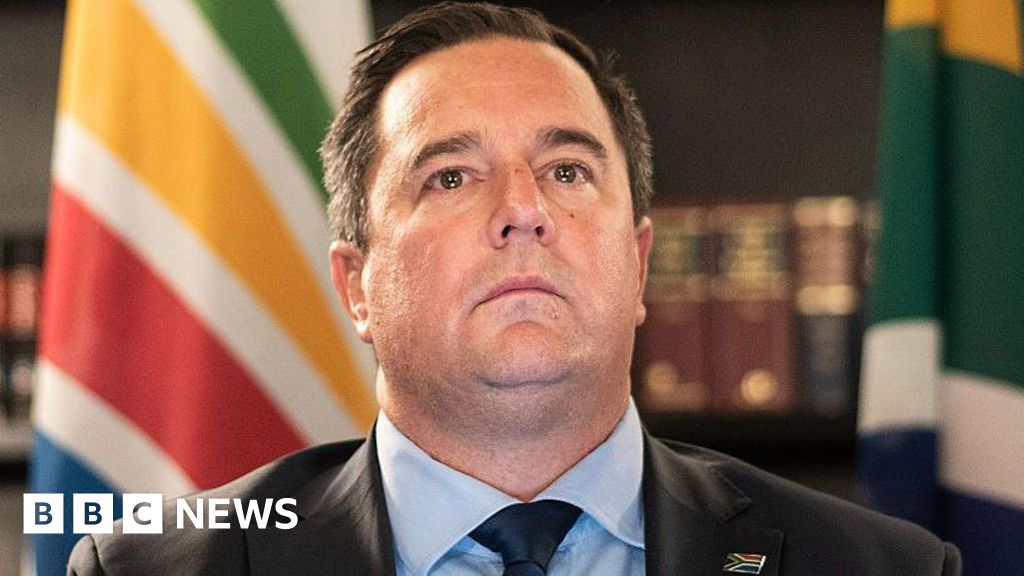
A private citizen’s unprecedented donation of $130 million to the United States Department of Defense, intended to cover the salaries of military personnel amidst a protracted government shutdown, has ignited a fierce debate concerning ethics, transparency, and the role of private philanthropy in public governance. The substantial gift emerged at a critical juncture, as hundreds of thousands of federal employees faced the prospect of unpaid work or furloughs, and the nation’s 1.3 million active-duty service members braced for uncertainty regarding their next paychecks. While initially veiled in anonymity, the benefactor was later identified as Timothy Mellon, a scion of a prominent American industrial and banking family and a significant political donor.
The Unfolding Crisis: Government Shutdown Context
The donation arrived during one of the longest government shutdowns in U.S. history, a political impasse that began over three weeks prior to the announcement. The genesis of the shutdown lay in a profound disagreement between the White House and congressional Democrats regarding funding for a proposed border wall. Lawmakers had failed to approve a series of appropriations bills, leading to a lapse in funding for numerous federal agencies. Essential services, including national security, were mandated to continue, but a vast majority of federal workers deemed "non-essential" were furloughed, while others, like Coast Guard personnel and Transportation Security Administration (TSA) agents, were required to work without immediate compensation.
The economic and social repercussions of the shutdown were far-reaching. Estimates suggested billions of dollars in lost economic activity, with a significant impact on local economies reliant on federal workers. Beyond the immediate financial strain on individual households, the shutdown eroded public trust in government functionality and raised questions about the stability of public services. For military families, the uncertainty surrounding paychecks compounded existing financial pressures, prompting concerns about morale and readiness. The Trump administration had previously taken measures to ensure military pay, notably by reallocating $8 billion from military research funds for the preceding pay period. However, with the shutdown persisting, the path forward for the upcoming payday remained unclear, intensifying anxiety among service members and their families.
The Donor Revealed: Identity and Background
President Donald Trump, in announcing the donation, offered initial clues about the benefactor, describing him as a "big supporter" and a U.S. citizen who preferred anonymity, highlighting what he called an unusual reluctance for recognition in the political sphere. However, media investigations swiftly identified the individual as Timothy Mellon. Mellon hails from one of America’s most historically influential families, whose legacy spans banking, oil, and industry, with a fortune estimated by Forbes at approximately $15 billion. His personal career has included significant involvement in the railway industry, a sector where his family’s influence has been felt for generations.
In recent years, Mellon has become increasingly active in political financing, aligning himself with conservative causes and figures. Public records indicate substantial contributions to political action committees and campaigns, including a reported $50 million donation to a group supporting President Trump. This pattern of high-value political engagement positions Mellon as a powerful, albeit often behind-the-scenes, force in contemporary American politics. His decision to directly fund a core government function, rather than channeling support through conventional charitable organizations or political committees, marked a significant departure from typical philanthropic engagement.
Navigating the Legal and Ethical Landscape of Philanthropy
The acceptance of such a large, direct donation by the Pentagon, particularly for operational expenses like salaries, immediately triggered a complex ethical review process. Department of Defense (DoD) regulations stipulate that any gift exceeding $10,000 must undergo scrutiny by ethics officials. This review is designed to ascertain whether the donor has any existing claims, procurement actions, litigation, or other particular matters involving the Department that could create a conflict of interest or the appearance of undue influence. Furthermore, donations originating from non-American citizens typically face an even higher level of scrutiny, though this was not applicable in Mellon’s case.
Pentagon spokesman Sean Parnell confirmed that the donation was accepted under the department’s "general gift acceptance authority," with the explicit condition that it be used to offset the cost of service members’ salaries and benefits. While the DoD does possess the authority to accept gifts, such contributions are typically directed towards specific projects, such as the construction or maintenance of schools, hospitals, libraries, museums, or cemeteries associated with military installations or personnel. The use of a private donation to directly fund the salaries of an entire branch of the uniformed services represents a rare, if not unprecedented, application of this authority, raising fundamental questions about the interpretation and boundaries of departmental gift acceptance policies. Critics immediately voiced concerns that this type of donation could set a dangerous precedent, potentially opening the door for wealthy individuals or entities to exert influence over core government functions by providing financial lifelines during periods of legislative gridlock.
Historical Precedent and Departmental Policies
The concept of private citizens supporting the military is not new. Throughout American history, particularly during wartime, private citizens have contributed to national defense efforts through bond drives, charitable organizations supporting service members and their families, and direct donations for specific, often humanitarian, causes. However, a direct, multi-million-dollar gift intended to cover the payroll of the entire active-duty military during a government-induced funding lapse stands in stark contrast to these historical patterns. Past philanthropic endeavors typically augment existing government provisions or address specific needs not met by public funding, rather than supplanting the government’s fundamental obligation to its workforce.
Government ethics guidelines are meticulously crafted to uphold the integrity of public service and prevent even the appearance of impropriety. These rules are designed to ensure that government decisions are made based on public interest, not influenced by private financial incentives. The unique nature of Mellon’s donation — effectively stepping in to perform a core government function (paying its employees) due to a political failure — places it in a grey area that challenges conventional interpretations of gift acceptance policies and the principles of democratic accountability. The underlying rationale for strict gift acceptance policies for government entities is to safeguard against potential conflicts of interest, maintain public trust, and ensure that the operations of government remain firmly within the purview of publicly elected and appointed officials, funded by taxpayer dollars.
The Broader Implications: Social, Cultural, and Political Impact
The revelation of Mellon’s donation elicited a mixed public response, reflecting the deeply polarized political landscape. For some, particularly those impacted by the shutdown, the donation was seen as a generous act of patriotism, a necessary stopgap to alleviate the financial hardship faced by military families. It offered immediate relief and demonstrated a private citizen’s willingness to support the troops when the government seemed unable to. For others, however, the donation was a deeply troubling development, signaling a dangerous erosion of democratic principles. Critics argued that allowing private citizens to fund core government operations, especially during a political impasse, normalized congressional dysfunction and undermined the constitutional responsibility of the legislative branch to appropriate funds.
This extraordinary event also sparked a broader discussion about the role of philanthropy in a democratic society. While charitable giving is a cornerstone of American culture, this particular gift raised questions about the potential for "privatization by proxy" – where private wealth steps in to fill gaps in public services, potentially blurring the lines between public responsibility and private influence. The optics of a billionaire stepping in to resolve a governmental failure ignited concerns about equity and accountability. It prompted analytical commentary on what it signifies for the state of American governance when the regular machinery of government requires a philanthropic bailout, and whether this could set a precedent for future interventions that bypass legislative processes and public oversight.
Expert Commentary and Future Considerations
Ethics experts and political scientists universally recognized the unprecedented nature of this donation. While acknowledging the immediate relief it offered service members, many expressed profound reservations about its long-term implications. Commentators highlighted the potential for such acts to legitimize government shutdowns, suggesting that if private wealth can mitigate the immediate consequences, there may be less political pressure on elected officials to reach timely funding agreements. There were also concerns about the precedent it might set: could other wealthy individuals or organizations seek to fund specific government operations or agencies that align with their interests, potentially creating a system where public services are indirectly influenced by private agendas?
The legal review of the donation by the Department of Defense’s ethics officials was paramount. This process would determine not only the legality of accepting such a gift under existing regulations but also its broader implications for departmental policy moving forward. The fundamental tension remained between the immediate benefit of providing financial stability to military families and the systemic risks associated with private individuals financially underpinning core government functions. This singular act of philanthropy, while driven by a stated desire to support the troops, inadvertently thrust complex questions of governance, ethics, and the evolving relationship between private wealth and public responsibility into the national spotlight, prompting a critical re-evaluation of the mechanisms by which American democracy is funded and sustained.









